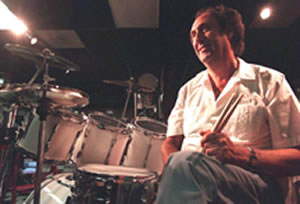“There is nothing remarkable about it. All one has to do is hit the right notes at the right time, and the instrument plays itself.” – J. S. Bach, on playing the organ, quoted in Bach, a CD-Rom from Harmonia Mundi.
At five o’clock on the very pleasant afternoon of November 28, friends, colleagues, and admirers filled Duke Chapel to celebrate David Arcus’s first twenty years as Chapel Organist. The recital consisted of music by the artist himself, including works that have become or are becoming familiar to some of us, such as the charming Variations on “Simple Gifts” (1996) and the powerful Toccata on “Nun Danket” (1987), and other pieces composed for a variety of occasions over the past seventeen years.
The first of two premieres was Prelude, Interludes, and Verses on Old 113th, in which the congregation joined in singing the four stanzas of the hymn tune. The three fugues between the stanzas approached the discipline of the fugue in different ways, and each brought a bright light to shine on the fine old Genevan Psalter tune. The third fugue especially caught my attention with its successive entrances, each adding a greater sense of excitement and leading up to a triumphant setting of the fourth stanza.
The other premiere on the program was Introduction and Passacaglia on “King’s Weston,” based on the hymn tune most of us recognize as “At the Name of Jesus every knee shall bow.” In this work Arcus uses the Flentrop’s full capabilities, from the lowest rumbling pedal point to the most dramatic and rich registrations available. His program notes indicate that “The dramatic and at times gut-wrenching expression in the music is meant to convey Christ’s passion, death, and resurrection.” This was indeed an impressive statement of music’s power to make us witnesses of the events themselves. It was an impressive score, carefully crafted, demanding, and effective.
Also on the program was the Andante and Fugue on “Jerusalem” (1997, 1990). C.H.H. Parry’s noble tune lends itself to a lyrical and impassioned prayer for peace as inspired by one of the hymn texts set to this melody, Carl P. Daw’s “O Day of Peace That Dimly Shines.” Of all the numbers on the program, this one was the most deeply moving. Its relevance was timely and befitting for these troubled times.
The program ended appropriately with Variations on an Advent Carol (“Besançon”), composed for an Advent service last year. As the composer points out in his program notes, the familiar old Basque carol is used to draw the listener into the inherent joy in making preparations for the coming of Christ. It is one of those pieces that make you feel you are walking out of the chapel taller and more confident than you were when you went in.
At the reception following the concert, Craig Kocher, Acting Dean of the Chapel, introduced Arcus as an artist whose driving passion is to always do his best, whether performing with chorus in a packed chapel service or for a small gathering of worshipers at Thursday evening Vespers or for a wedding party of no more than nine or ten. He quoted Arcus as saying that he is always aware that some people may be present who are hearing one of the magnificent Duke Chapel organs for the only time in their lives. For twenty years, he has simply and humbly offered to the thousands who come to the chapel an opportunity to experience the glory of God in always fresh, inspiring and edifying ways.
Whenever his students became discouraged, J.S. Bach, the Cantor of Liepzig, said, “I’ve worked hard. Whoever tries to do as much will be able to do what I did…. After all,” he would remind them, “I have only two hands and ten fingers just as you.” In terms of mission and commitment, I have no hesitation in making a tempting comparison between JSB and Arcus. In terms of facility at the console, one can only conjecture, but in terms of facility in the composition of masterworks for the organ, the comparison has some merit. Of course, now all Arcus has to do is compose over 200 cantatas, motets, passions, a mass or two, a clutch of concerti, suites, etc. We don’t really expect or need that – but we are blessed to have Arcus as he is – a true local treasure – and to celebrate his presence here, and that’s enough.











